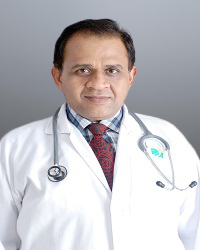Best Doctors for Nephrectomy in Mysore
Nephrectomy is a surgical procedure that involves the removal of a kidney, either partially or completely. Kidney doctors recommend this procedure for various conditions, including kidney cancer, severe infection or trauma, and for kidney donation. The best nephrectomy doctors employ different surgical techniques, such as laparoscopic, robotic, or open surgery, depending on the patient's specific condition and requirements. The procedure is performed under general anaesthesia to ensure the patient's comfort and safety.
In Mysore, patients can find highly skilled and experienced nephrectomy doctors who specialise in various techniques at Apollo Hospitals. They are particularly adept at performing laparoscopic and open partial nephrectomies, which are less invasive and offer faster recovery times than traditional open surgery. With their expertise and state-of-the-art facilities, the best nephrectomy specialists in Mysore provide comprehensive care and support to patients throughout their treatment journey.







 Call Now
Call Now

